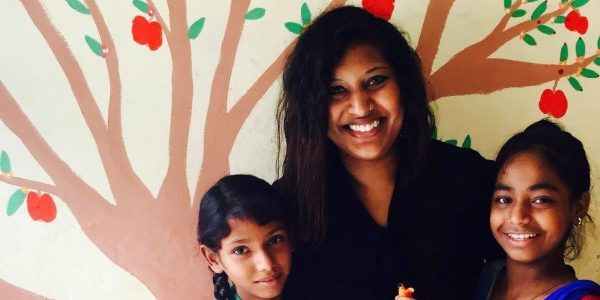“I knew I wanted to be a social worker since fifth grade,” said Arlene Chandra ’14 over the phone this past fall. She was on the bus, heading to class at the University of Michigan, where she graduated in December with a Masters of Social Work.
Even before graduating, Chandra was already living the life of a social worker, on-call twenty-four hours a day to provide support for her clients. On the phone, she rattled off a list of her other obligations. In her final term, she was enrolled full-time and working over forty hours a week between her social-work internship, a job with University of Michigan’s Blavin Scholars Program— which provides professional development services to undergraduates who have spent time in foster care— and working in a pair of on-campus libraries.
A first-generation college student, Chandra entered Gonzaga University majoring in psychology. It was Dr. Nicole Willms’ Introduction to Sociology course which she says “changed my life.” She added sociology as a second major. “I became a sociologist because of Dr. Willms.”
For one of the two theses she completed her senior year, “Fostering Care for Foster Children – DNA Doesn’t Make a Family, Love Does,” Chandra researched the service gaps for children who had spent time in foster care. Her second thesis, “The College Hook-Up Culture of Mating, Dating and Waiting: Religion vs. Religiosity,” required that she conduct interviews across the student body. For both theses, she says, “I did participant observation, content analysis, interviews, focus groups, and surveys.”
Chandra attributes her success in graduate school to the skills she developed doing undergraduate research and to the faculty who helped her along the way. “I haven’t come across any graduate students with more research experience than what I gained at Gonzaga. Nobody has done as much research or received as much support as I did with my cohort.”
That experience has real-life consequences. Using the interview, research, and presentation skills she developed at GU, she is already writing and delivering court testimony on her clients’ behalves. She is aware of her work’s impact on peoples’ lives. “Social workers assist in making the deciding vote,” she says. “Is a child going to be taken away from their parents or not?”
After her first year of graduate work, Chandra was awarded the University of Michigan’s Child Welfare and Global Special Studies Scholarship to travel and work in India. She spent much of her time working with New Delhi’s marginalized street children, teaching them math, reading, writing, and English. Most importantly, she was a caring presence for them. “The most touching time of my life was with these kids,” she says. “I feel like I really impacted and touched their lives.”
The experience inspired her first children’s book, Family is Friendship: Light the Magic Within You, published in November 2016. The profits from the book will support the work of the Kamal Loachan Society, the organization she worked with in New Delhi. She says, only partially joking, “That’s my dream. To make money and give it away.”
Her ultimate goal, though, is to open a foster care and adoption agency in her hometown of Vancouver, Washington, which she plans to do after obtaining her social work licensure in the state, a process that could take three years or more.
Until then, she will continue her many works as a woman for others. Whether supporting her clients, writing children’s books, or starting her own agency, she promises, “You will see me out there.”
